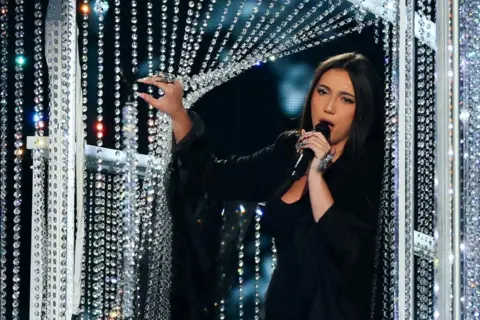ESC Switzerland 2025: Everything You Need to Know About the Eurovision Host

The Eurovision Song Contest is back and bigger than ever, with the grand final landing in Switzerland for 2025. Fans worldwide eagerly anticipate this edition, especially after Switzerland’s remarkable victory in 2024. In this article, we dive into everything you need to know about ESC Switzerland, from the host city to standout contestants and the impact of recent winners.
Why Is ESC 2025 Hosted in Switzerland?
The spotlight falls on Switzerland this year as Basel prepares to welcome Eurovision fans from all corners of the globe. Switzerland earned hosting rights after Nemo clinched victory in 2024 with their powerful song, "The Code." As this BBC guide highlights, Basel's St Jakobshalle arena will stage the grand final on Saturday, 17 May 2025. The city’s inclusive motto, "Welcome Home," references the very first Eurovision hosted by Switzerland in 1956.
A total of 37 countries will compete in ESC Switzerland 2025, promising a diverse and exciting show. Notably, the event returns Montenegro to the contest, while Switzerland automatically qualifies for the final as reigning champion.
ESC Switzerland 2025: The Key Highlights
Spotlight on Nemo: Making Eurovision History
Nemo's 2024 Eurovision win broke several records. They became the first non-binary champion, inspiring audiences and giving visibility to queer and non-binary communities. In a candid HuffPost UK interview, Nemo opened up about their historic journey and how their song provided a home for marginalized groups. Their return performance at ESC Switzerland in 2025 is set to be one of the most anticipated moments of the night.
Switzerland’s 2025 Contestant: Zoë Më
This year, Switzerland will be represented by Zoë Më with the song "Voyage." The home crowd hopes for another strong showing. Switzerland’s history at Eurovision includes previous victories, such as Céline Dion’s iconic 1988 win and the contest’s very first winner in 1956.
Schedule and How to Watch
The ESC Switzerland final will air live on BBC One and BBC iPlayer from 20:00 BST. Radio fans can tune in via BBC Radio 2 and BBC Sounds. This ensures fans across Europe—and beyond—won’t miss any of the action or the spectacular performances that Eurovision is famous for.
Diversity and Politics: The Heart of ESC Switzerland
Eurovision is renowned for its celebration of diversity. In 2025, conversations around inclusivity are stronger than ever. As explained by Nemo in their recent interview, being true to one's identity remains a central message. The contest remains a critical platform not only for music but for social issues.
Controversies, such as debates regarding Israel's participation, have made headlines but also highlighted Eurovision’s role as a place for dialogue and unity. Despite heated discussions, the spirit of ESC Switzerland aims to foster connection through music and cultural exchange.
Contestants and Grand Final Line-Up
The BBC’s comprehensive overview details the contestants qualifying from both semi-finals, including popular acts from Sweden, the UK, and returning favorites from across Europe. Notably, the "Big Five" countries—UK, Italy, Spain, France, and Germany—along with Switzerland, gained automatic spots in the final, guaranteeing fierce competition for the trophy.
Switzerland’s Enduring Impact on Eurovision
Switzerland’s hosting of ESC 2025 is more than just another contest. It’s a testament to the country’s lasting influence on Eurovision’s legacy and culture. From historical wins to groundbreaking performances, Switzerland continues to shape the story of this beloved song contest.
Conclusion: Why ESC Switzerland 2025 Is Unmissable
With an impressive historical legacy, a tradition of inclusivity, and a diverse stage of musical talent, ESC Switzerland 2025 promises a show to remember. Whether you're a long-time Eurovision fan or new to the phenomenon, tune in to witness live performances that unite Europe and the world in song. For more updates, contestant stories, and expert analysis, explore the detailed BBC ESC guide or learn more about Nemo’s journey and message in this exclusive HuffPost interview.
Don't miss ESC Switzerland 2025—where music, diversity, and history harmoniously meet under one roof in Basel.